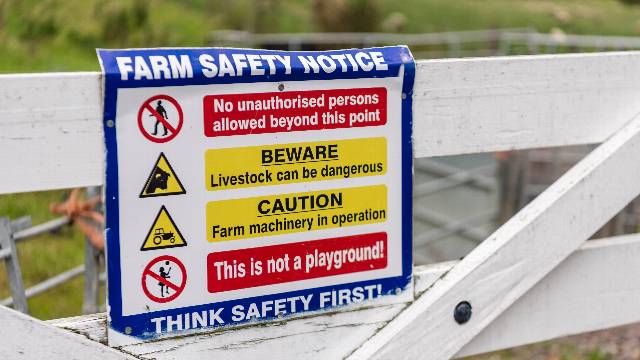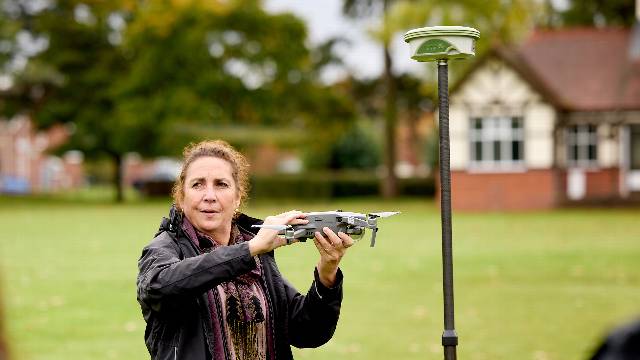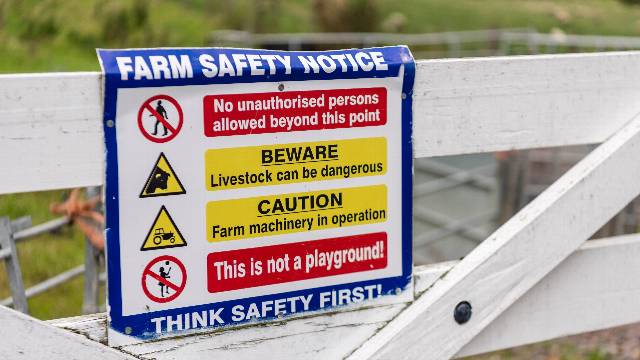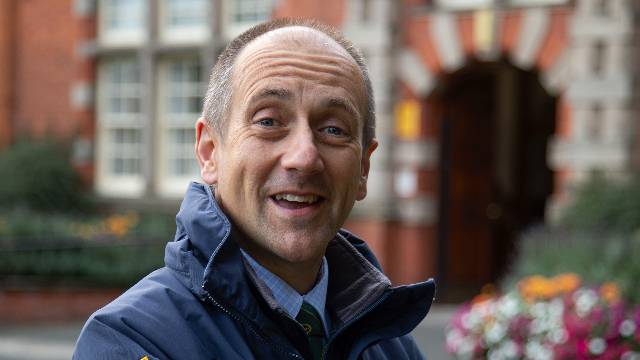An expert from Harper Adams University has spoken with the BBC about the impact of dry weather on farmers.
Senior Lecturer in Soil and Water Management Dr Lucy Crockford spoke with Radio Shropshire after Severn Trent Water announced it had given away 150 mobile water storage units to livestock farmers to help them manage in the recent dry spell.
The units are no longer needed for domestic use, and the BBC spoke with farmers in the county who have been using them before catching up with Dr Crockford.

She said: “It’s really challenging if you have animals that are requiring water – and that’s obviously our first concern – but it does have wider impacts as well.
“Just to talk about crops, for those of us who aren’t quite au fait with farming, we have two different types of crops, we have spring crops and winter crops. The winter crops go in before Christmas, and by the time it comes to spring they’re kind of set to go.
“Those have come in much earlier than expected, so probably about three weeks earlier from talking to some farmer friends and it’s the same story for the spring crops that go in in February – they’re also coming in about three weeks earlier.
“What we’re seeing is the height of crops being reduced – maize being probably about a third shorter than they were expecting – and that’s an indicator as to what’s happened with the grain production.
“Grain needs to have lots of water to fill it out, and so you have ended up with a much lower yield because of that lack of rain over the springtime.”
These lower yields in crops will have impacts across the food chain – affecting both humans and animals, Dr Crockford added – with land having to be used to provide fodder for animals over the upcoming winter.
And noted that not only will farmers start turning to other crops as climate change bites – but we are also going to have to make changes to our water infrastructure more widely to truly tackle the challenges ahead.
She added: “We need to think as a country how we want to store water, where we're going to put it, how we use this - and then we can hopefully try to design our way out of the huge impact that climate change is actually having now.”
Listen again to Dr Crockford’s interview here and the wider piece on BBC Sounds here, from 2 hours 17 minutes in.
 Farm Safety Week 2025: Always Take Safety Seriously
This week is Farm Safety Week.The week is led by The Farm Safety Foundation (Yellow Wellies) – and we’re marking the occasion wi …
Posted 24 July
Farm Safety Week 2025: Always Take Safety Seriously
This week is Farm Safety Week.The week is led by The Farm Safety Foundation (Yellow Wellies) – and we’re marking the occasion wi …
Posted 24 July





